
American Institute of Architects (AIA)
Course Number/ID: AEC1278-02:1
Approval ID: AEC1278-02:1
AIA/CES Learning units:
1
AIA approved course. This course qualifies for 1.0 LU/HSW Hour.
AEC Daily reports Learning Units on members' behalf.

Green Building Certification Inc. (GBCI)
Course Number/ID: AEC1278-02:1
Approval ID: 920032737
GBCI CE Hours:
1
GBCI approved for GBCI General CE. Course approval #920032737
AEC Daily reports Learning Units on members' behalf.

Health, Safety, and Welfare (HSW)
Course Number/ID: AEC1278
Approval ID: AEC1278
Hours:
1
This course qualifies for HSW.
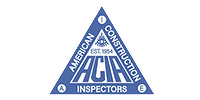
American Construction Inspectors Association (ACIA)
Course Number/ID: AEC1278-01:1
Approval ID: AEC1278-01:1
Credits:
1
This course is approved for ACIA RCI CEUs. This course qualifies for HSW.
ACIA members self-report to ACIA by submitting their certificate of completion to ACIA for RCI renewal.
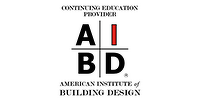
American Institute of Building Design (AIBD)
Course Number/ID: AEC1278
Approval ID: AEC1278
CE Hours:
1
AIBD approved course. This course qualifies for HSW.
AEC Daily reports Learning Units on members’ behalf.

American Institute of Constructors (AIC)
Course Number/ID: AEC1278
Approval ID: AEC1278
CPD Hours:
1
AIC approved course.
Hours must be self-reported to the AIC.

Building Owners and Managers Institute - Continuing Professional Development (BOMI CPD)
Course Number/ID: AEC1278
Approval ID: AEC1278
CPD Hours:
1
BOMI approved course. This program qualifies for BOMI Institute Continuing Professional Development (CPD) credit for RPA, FMA, and/or SMA graduates. This course qualifies for HSW.
Members must self-report CPD hours.
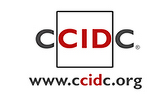
California Council for Interior Design Certification (CCIDC)
Course Number/ID: AEC1278
Approval ID: AEC1278
CE Hours:
1
CCIDC approved course. This course qualifies for HSW.
Members must self-report CEU hours to CCIDC.

Florida Board of Professional Engineers (FBPE)
Course Number/ID: AEC1278
Approval ID: AEC1278
Provider Number: 0004278, Sequence Number 0000031
PDHs:
1
FBPE approved provider.
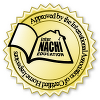
The International Association of Certified Home Inspectors (InterNACHI)
Course Number/ID: AEC1278
Approval ID: AEC1278
CE Hours:
1
InterNACHI approved course. This course qualifies for HSW.
Members must self-report CE hours to InterNACHI.

Landscape Architecture - Florida Department of Business and Professional Regulation (On- Demand) (LA)
Course Number/ID: AEC1278-01:1
Approval ID: 0013801
Provider Number: 0009165
Credit Hours:
1
The Florida Department of Business and Professional Regulation has approved this course through LA for continuing education requirements.
As a LA provider, AEC Daily will report on your behalf to the Florida Construction Industry Licensing Board.

Landscape Architecture Continuing Education System™ (LA CES)
Course Number/ID: AEC1278
Approval ID: AEC1278
PDH:
1
LACES registered course. 1 Contact Hour
AEC Daily is registered with the Landscape Architecture Continuing Education System as a provider of Continuing Professional Education programs for landscape architects. This course qualifies for HSW. AEC Daily reports Professional Development Hours on members’ behalf.

National Association of Home Builders (NAHB)
Course Number/ID: AEC1278
Approval ID: AEC1278
CE Hours:
1
This program meets NAHB's continuing education requirements for one or more of the following designations: Certified Graduate Associate (CGA), Certified Graduate Builder (CGB), Certified Graduate Remodeler (CGR), Certified Green Professional (CGP), Graduate Master Builder (GMB), Graduate Master Remodeler (GMR), Certified Aging-In-Place Specialist (CAPS)

National Association of the Remodeling Industry (NARI)
Course Number/ID: AEC1278
Approval ID: AEC1278
CEUs:
0.1
NARI approved course.
0.1 CEU toward certification renewals. 1 Hour toward certification application.

North Carolina Board of Landscape Architects (NCBOLA)
Course Number/ID: AEC1278-01:1
Approval ID: AEC1278-01:1
Hour(s)
1
This course is approved by the NCBOLA
Members must self-report

Registered Continuing Education Program (RCEP)
Course Number/ID: AEC1278-01:1
Approval ID: 153923
PDH:
1
AEC Daily is an RCEP-approved continuing education provider.
Credit earned on completion of this program will be reported to RCEP.

Rocky Mountain Masonry Institute (RMMI)
Course Number/ID: AEC1278
Approval ID: AEC1278
Credit Per Hour:
1
This is a RMMI approved course.
RMMI will confirm certification credit upon receipt of Certificate of Completion (members must self-report).

The Alberta Association of Architects (AAA)
Course Number/ID: AEC1278
Approval ID: AEC1278
Provider No.: A-002
Learning hours:
1
This course is approved as a Structured Course.
AAA Members must self-report their learning hours to AAA.
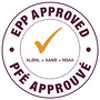
AANB + ALBNL + NSAA (AANB + ALBNL + NSAA)
Course Number/ID: AEC1278-01:1
Approval ID: AEC1278-01:1
Core Hours:
1
This course is EPP approved.
Members must self-report their learning hours on the RAIC|Architecture Canada Transcript Database, https://raic.org/transcripts

Architects Association of Prince Edward Island (AAPEI)
Course Number/ID: AEC1278
Approval ID: AEC1278
Learning hours:
1
This course is approved as a Core Learning Activity.
Members must self-record their learning hours on the RAIC|Architecture Canada Transcript Database, https://raic.org/transcripts.
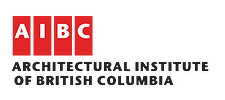
Architectural Institute of British Columbia (AIBC)
Course Number/ID: AEC1278
Approval ID: AEC1278
Learning units:
1
AIBC members may self-report this learning activity for consideration of AIBC learning units.

Canadian Association of Home and Property Inspectors (CAHPI)
Course Number/ID: AEC1278
Approval ID: AEC1278
MRC Hours
1
CAHPI approved course, MRC Hours.
Members must self-report MRC hours to CAHPI.

Newfoundland & Labrador Association of Architects (NLAA)
Course Number/ID: AEC1278
Approval ID: AEC1278
Learning units:
1
This course is approved as a core course.
Members must self-report LUs through the MCET National Con Ed reporting website. (www.architranscripts.ca/default.htm)
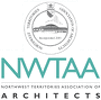
Northwest Territories Association of Architects (NWTAA)
Course Number/ID: AEC1278
Approval ID: AEC1278
Learning Hours:
1
This course is approved as a Structured course.
Members must self-report Learning Hours through the National Con Ed reporting website at https://www.raic.org/transcripts/default.htm

Ontario Association of Architects (OAA)
Course Number/ID: AEC1278
Approval ID: AEC1278
Hours:
1
This course may apply to both OAA structured and unstructured learning as long as it addresses the required subject matter topics.
Members must self-report activity to OAA and retain your Certificate of Completion.

Ordre des architectes du Québec (OAQ)
Course Number/ID: AEC1278 / Cours # AEC1278
Approval ID: AEC1278 / Cours # AEC1278
Hours / Nombre d’heures:
1
This course qualifies for self-directed learning activity with the OAQ. / Ce cours est reconnu par l’OAQ comme activité d’auto-apprentissage.
Members must self-report hours to OAQ. / Les membres doivent rapporter eux-mêmes leurs heures à l'OAQ.

Saskatchewan Association of Architects (SAA)
Course Number/ID: AEC1278
Approval ID: AEC1278
Provider No.: 1036
Learning units:
1
This course is approved as a core course.
Members must self-report LUs through the RAIC National Con Ed reporting website. http://raic.org/transcripts.
